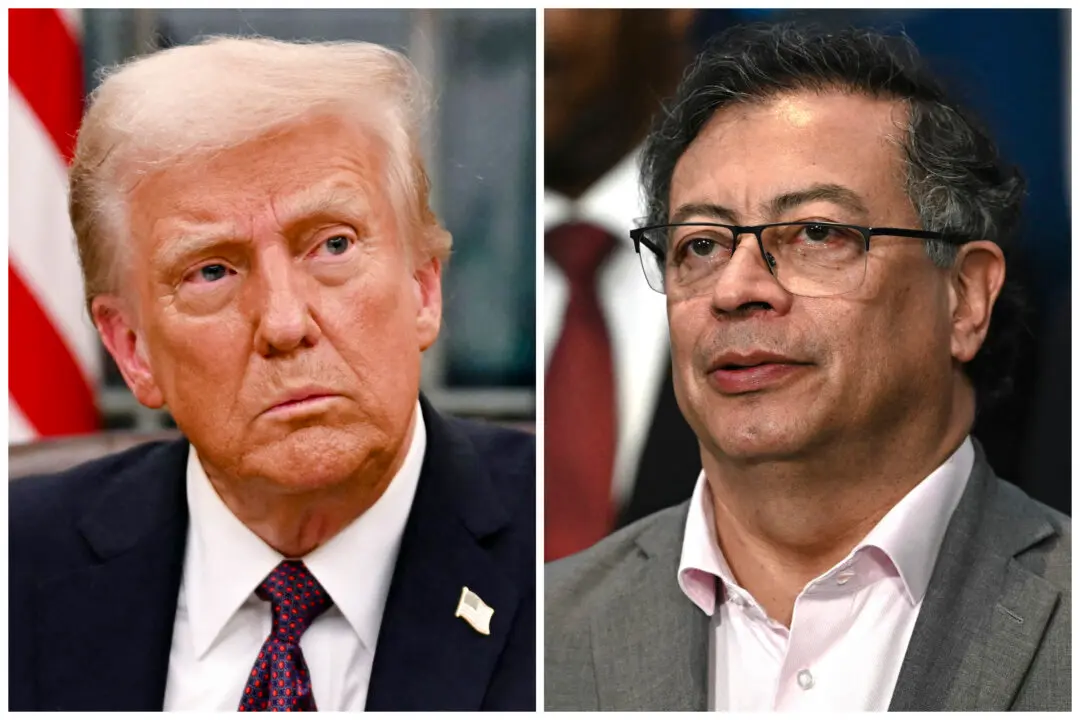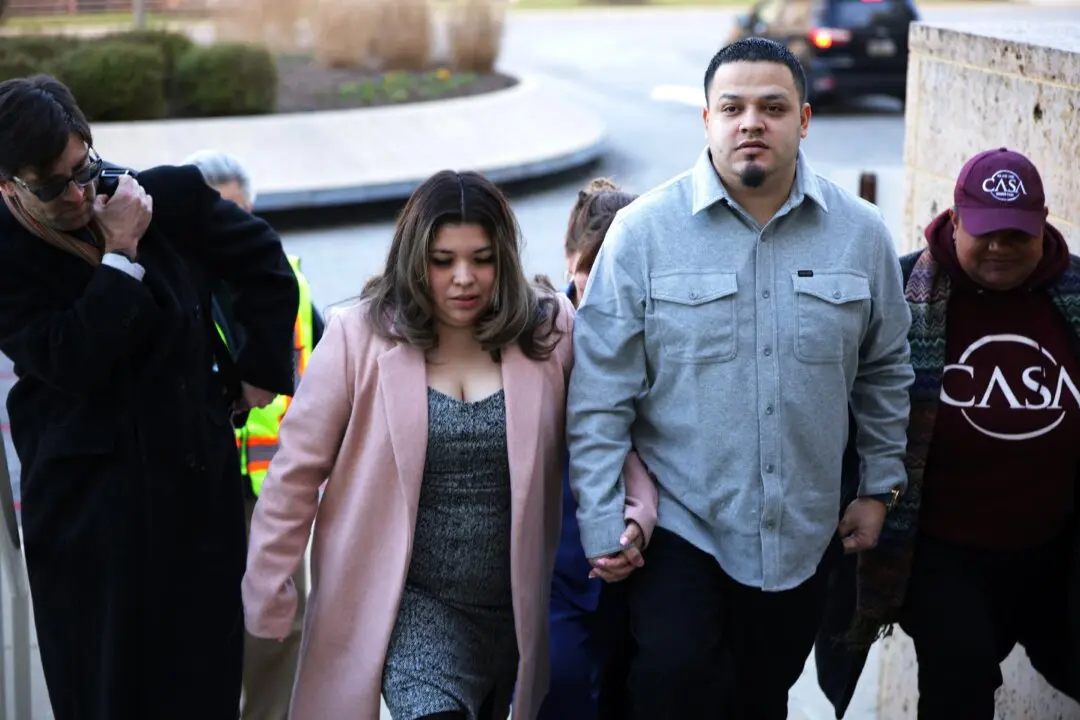Thousands of illegal immigrants in a caravan broke through a barricade of Mexican police dressed in anti-riot gear on Oct. 23, driven to action by what they say are impossible conditions in the overcrowded southern Mexican border city of Tapachula.
Around 400 Mexican interior police attempted to form a blockade to stop a flood of more than 2,000 illegal immigrants as they attempted to leave the city, which lies on Mexico’s border with Guatemala.





